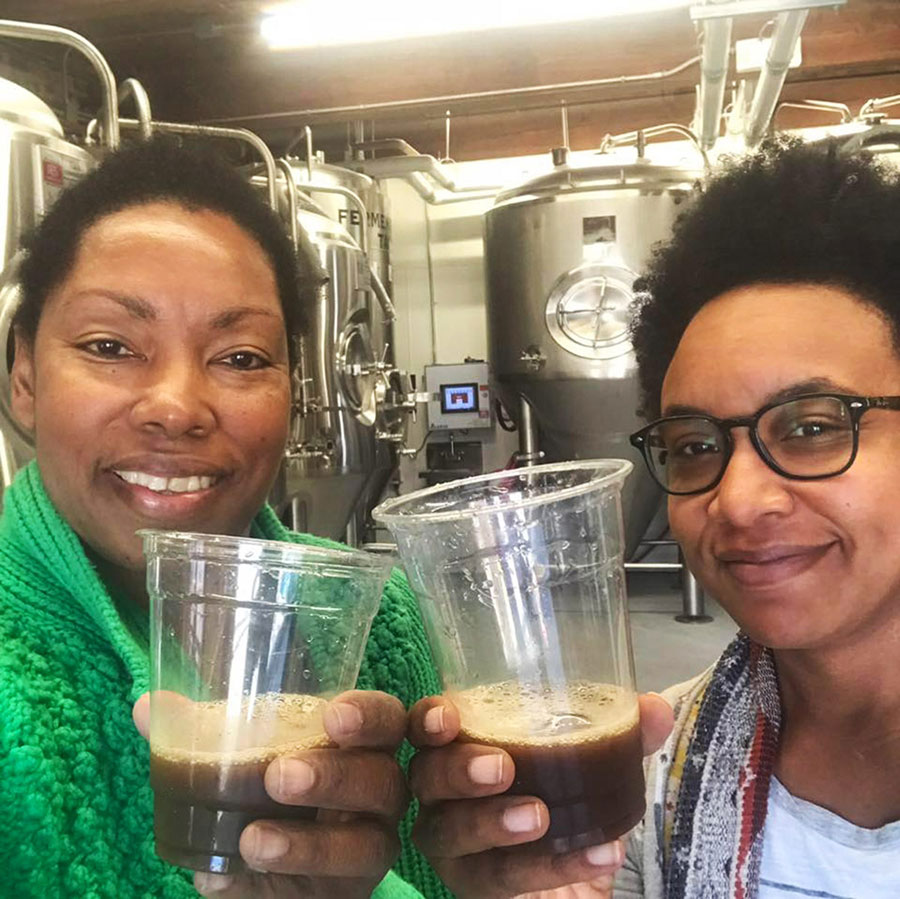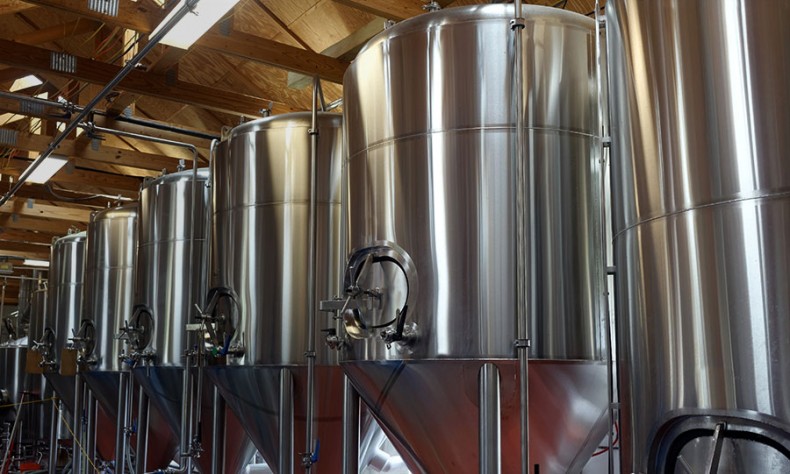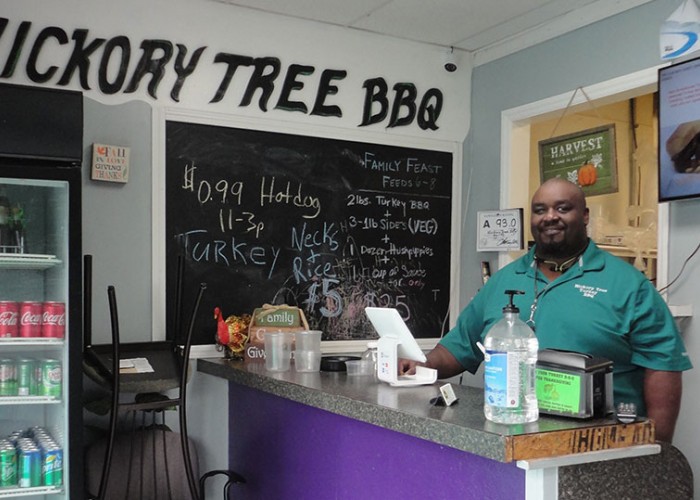Good Things Brewing
Briana Brake and Celeste Beatty are championing diversity (and good beer) in Eastern NC
By Tina VasquezIn North Carolina, craft brewing is a billion-dollar industry that is transforming cities and rural areas. The state boasts the largest concentration of craft breweries in the American South, but of North Carolina’s more than 300 breweries and brewpubs, only two are black-owned.
Briana Brake, brewer and founder of Rocky Mount’s Spaceway Brewery, recently joined forces with another trailblazer in the industry, Celeste Beatty, brewer and founder of New York-based Harlem Brewing. Together, they’ve established Rocky Mount Brewery at the historic Rocky Mount Mills, a newly renovated 150-acre mixed-use development on the Tar River.

Briana (right) and Celeste toast with their 200th Anniversary Olde Ale, commemorating the anniversary of the cotton mill.
Rocky Mount Brewery is housed in a “brewery incubator” space at the Mills through a new program in partnership with Nash Community College, which offers up-and-coming brewers resources and educational opportunities. The brewery also is currently the only black-owned brewery with a physical space in North Carolina. Another, L.A. McCrae’s Black Star Line, was located in Hendersonville, but following multiple break-ins, racially-charged threats and difficulties securing funding, the brewery space was closed in January 2018.
“I think a lot of breweries need to reach out to more black and brown people and make them feel comfortable going. There are ways to signal you’re a welcoming space, from the music you play to hiring people of color to work there, or even creating apprenticeships and internships directly marketed for diversity,” Briana says. “I have people messaging me or coming up to me and thanking me for just being here, thanking me for the brewery.”
The 39-year-old started small by making ginger beer in her home. She was fascinated by the fermentation process, she says, and wanted to learn everything about it—especially after an early experience when glass bottles of fermenting ginger beer exploded. That was six years ago, and as Briana prepared herself for the next big step of launching her own brewery, she found there weren’t many possible models she could turn to. That is, until she met Celeste during a 2016 business panel at a university. By this time, Celeste had been brewing beer with her company, Harlem Brewing, for 16 years. The pair became friends immediately and decided to go into business together.
“I think a lot of breweries need to reach out to more black and brown people and make them feel comfortable going. There are ways to signal you’re a welcoming space, from the music you play to hiring people of color to work there, or even creating apprenticeships and internships directly marketed for diversity,” Briana says. “I have people messaging me or coming up to me and thanking me for just being here, thanking me for the brewery.”
Celeste has been based in New York for many years, but as a Winston-Salem native, she wanted to have a presence in North Carolina. She now goes back and forth between the two states, while Briana remains in North Carolina as Rocky Mount Brewery’s head brewer, creating beers for both Harlem Brewing and her own Spaceway Brewery.
Briana describes Spaceway Brewery as an ode to Afrofuturism, a sort of reimagining of a future filled with art, culture, and technology seen through a black lens.
“For me, Afrofuturism isn’t just about depicting a future where minorities are represented in pop culture; it’s about envisioning a space for us in every industry and making that a reality,” Briana says. “There is a space for us in the future, and craft brewing isn’t really inclusive of minorities yet, so that is the world and the industry that I’m working toward.”
Rocky Mount is a good place to start. The predominantly black community has experienced a recent wave of interest, primarily because of Rocky Mount Mills. Founded in 1818 as one of the first cotton mills in the state, Rocky Mount Mills’ workforce was comprised almost entirely of enslaved people. Briana said for her, it’s important to acknowledge and understand the mills’ history.
“I’ve talked to older people in the community who grew up here when it wasn’t as welcoming to black people as it is now,” Briana explains. “Many of these wounds haven’t healed, and we need to work toward that. But I let them know that we are here at the Mills now, and this is a welcoming place.”
-
Meet more Carolina People
-
Share this story:





